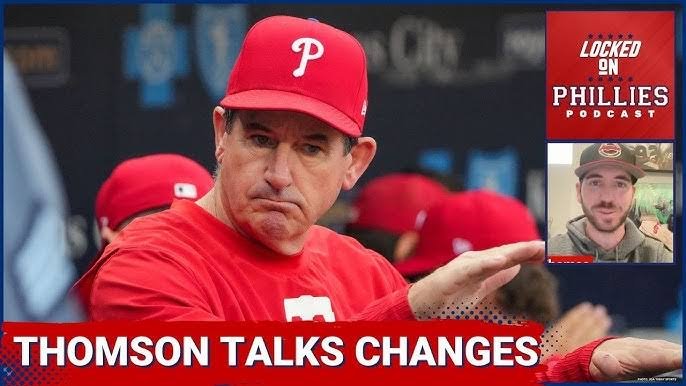Breaking News: Phillies’ Head Coach Pioneers Revolutionary Analytics in MLB
In a groundbreaking move, the Philadelphia Phillies’ head coach has emerged as a leading innovator in the realm of advanced analytics within Major League Baseball (MLB). This development signals a significant shift in how the game is strategized, with technology and data analysis now at the forefront of decision-making.
### **A New Era of Analytics in Baseball**
Baseball has long been a sport where statistics hold immense value. From batting averages to ERA (earned run average), numbers have always told part of the story. However, the Phillies’ head coach is taking it to the next level. By leveraging cutting-edge technology, real-time data, and predictive algorithms, the team aims to outmaneuver its competition both on and off the field.
Unlike traditional sabermetrics, this new approach integrates biomechanical analysis, machine learning, and situational simulations to provide a comprehensive strategy for every game scenario. These tools enable the Phillies’ coaching staff to identify inefficiencies, optimize player performance, and make informed decisions in critical moments.
### **The Strategy Behind the Revolution**
According to insiders, the coaching staff has collaborated closely with top data scientists to develop a proprietary analytics platform. This system captures thousands of data points per game, analyzing everything from pitcher spin rates to defensive shifts. The innovation extends to wearable devices that monitor players’ physical metrics, ensuring peak performance while minimizing the risk of injury.
This strategy also incorporates game theory, allowing the team to simulate countless in-game situations and predict potential outcomes with remarkable accuracy. The result is a playbook that adapts dynamically, offering a competitive edge that goes beyond conventional baseball wisdom.
### **The Impact on Team Performance**
Since implementing this analytics-driven approach, the Phillies have shown noticeable improvement in key performance areas. Their pitching staff has reduced walks and increased strikeouts, while hitters have become more adept at exploiting opposing pitchers’ weaknesses. The team’s defensive alignment has also been transformed, leading to a higher rate of turning batted balls into outs.
Veteran players have reportedly embraced the shift, praising the clarity and confidence it provides during games. Meanwhile, younger athletes have benefitted from tailored training regimens, designed with data-driven insights to accelerate their development.
### **Critics and Challenges**
Despite the positive reception within the organization, this revolutionary approach has not been without its critics. Some traditionalists argue that over-reliance on analytics diminishes the human element of the game, including instinct and experience. Opposing teams have also raised questions about the ethics of using wearable technology, calling for clearer guidelines on its permissible use.
Additionally, implementing such a sophisticated system is not without challenges. The Phillies have invested heavily in infrastructure and talent to support their analytics initiative, a commitment that might not be feasible for smaller-market teams. This disparity could widen the competitive gap within the league, sparking debate about fairness and resource allocation.
### **What This Means for MLB**
The Phillies’ bold move could herald a new era for MLB. If successful, it may prompt other teams to adopt similar technologies, transforming the league into a data-driven battlefield. Analysts predict that this shift could influence everything from player scouting to contract negotiations, as teams seek every possible advantage in an increasingly competitive environment.
Moreover, the integration of advanced analytics could alter the fan experience. Broadcasts might feature deeper statistical breakdowns, offering insights previously reserved for coaching staff. Fans, too, might gain a better understanding of the game’s intricacies, fostering a new level of appreciation for baseball’s strategic depth.
### **Looking Ahead**
The Phillies’ head coach has not only placed the team at the forefront of baseball innovation but has also ignited a broader conversation about the role of technology in sports. As the season unfolds, all eyes will be on Philadelphia to see if this analytics revolution translates into tangible success.
While the long-term implications remain uncertain, one thing is clear: the Phillies are reshaping the way baseball is played, coached, and understood. Whether this gamble pays off or serves as a cautionary tale for others, it marks a pivotal moment in the evolution of America’s pastime.


